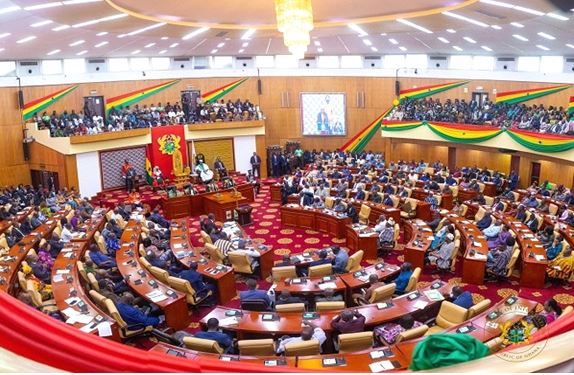By Denis GYEYIR
Members of Ghana’s parliament face a critical task as they deliberate on ratification of the country’s first lithium mining agreement – a 15-year lease with Barari DV for the Ewoyaa mine. Their decision holds far-reaching implications for the nation’s economy and environment. Lawmakers mus, therefore thoroughly evaluate the agreement and ensure it delivers sustainable benefits for the citizens before they approve it.
The Ewoyaa lithium mine agreement, signed by the company and government in October 2023, boasts an impressive internal rate of return at 94 percent, even before consideration of debt financing. Research from the Natural Resource Governance Institute (NRGI) provides insights into the deal’s fiscal terms; we found cause for both commendation and caution.
Our analysis indicates government negotiated a fair share of revenue for the lithium mine, exceeding requirements in Ghana’s legislated fiscal regime. Government’s eventual take should also surpass that achieved by many other established and emerging lithium hard rock producers – such as Australia, the Democratic Republic of the Congo and Zimbabwe. However, securing a favourable fiscal regime is only the first step. Parliament must address several critical issues to fully realise the mine’s benefits.
Unlike Ghana’s traditional gold mines, the Ewoyaa lithium mine presents a unique set of opportunities and risks. Its promise of substantial revenues is tempered by significant environmental risks associated with open-pit mining operations; including land degradation, pollution, displacement and social disruption. Parliament can mitigate these risks by ensuring the agreement includes strategies for sustainable rehabilitation of mining sites. They must also exercise oversight to ensure that, as part of the annual work programme approval process, the Minerals Commission mandates Barari to adopt low-impact mining techniques, eco-friendly processes and equipment that minimise waste, water and energy use.
Preventing revenue leakages is equally central to harnessing the potential of Ghana’s lithium wealth. Parliamentarians must institute strong measures to protect the nation’s fiscal interests.
They should set a transparent pricing benchmark for lithium to prevent selling it too cheaply, limit how much Barari can write-off in expenses to avoid hidden profits, and safeguard government’s ownership stake in the project. Moreover, potential concessions to the mining company – such as tax holidays and discounted electricity tariffs – require scrutiny. Given the project’s projected profitability, such concessions may be unnecessary and detrimental to the nation’s interests.
Value addition, which involves transforming raw materials into higher-value products, is key to sustainable mineral development and must be a strategic priority for Ghana. The country can create jobs, generate additional revenue and provide cheaper inputs for other sectors by establishing a domestic lithium processing industry. While government’s push for a local lithium refinery is commendable, parliament must ensure that Barari is thorough and transparent in its preparation of the supporting feasibility study. Broad-based consultations with industry experts, development partners and civil society are essential to inform this critical decision.
Community development, often overlooked in the mining sector, also demands urgent attention. The lithium agreement is a golden opportunity to address historical shortcomings in social responsibility. Parliament must mandate clear guidelines for community development within the lithium agreement with Barari, and develop pathways for residents to participate in decision-making and benefit-sharing. The agreement or associated guidelines should also incorporate robust mechanisms for community oversight, grievance redress and long-term sustainability.
Ghana’s handling of the Ewoyaa lithium mining agreement will set a precedent for future resource deals and management, and parliament will play a crucial role in shaping this approach. With rigorous due diligence, meaningful debate and a focus on the nation’s long-term interests, lithium mining has the potential to drive social progress rather than lead to conflict and displacement. Ghanaians have entrusted the lawmakers with a major responsibility; I urge them to be vigilant stewards, working for the benefit of all.
About the author
Denis is Africa Senior Programme Officer at the Natural Resource Governance Institute and writes from Accra.










